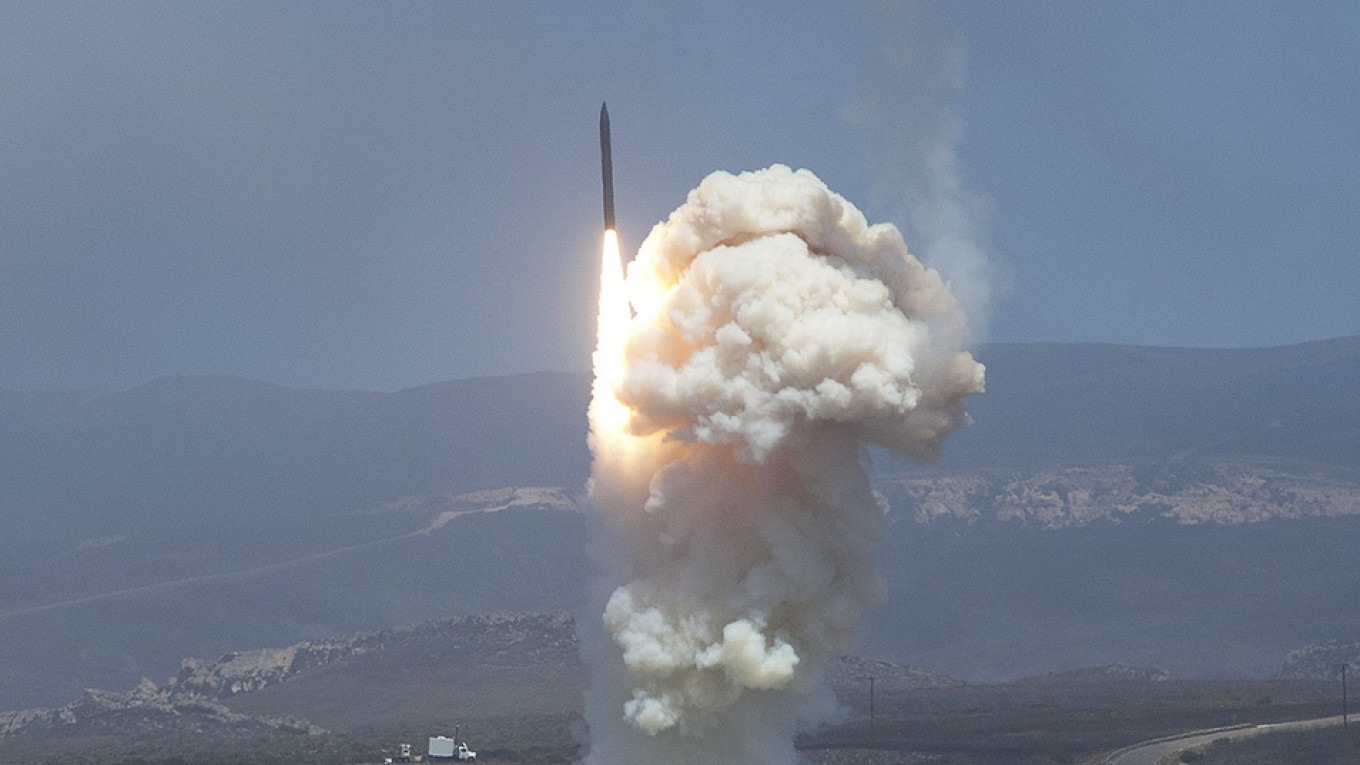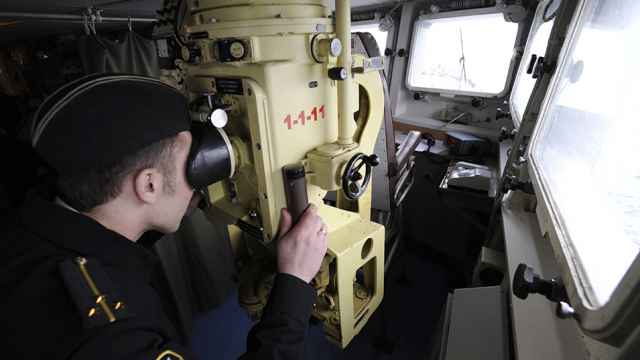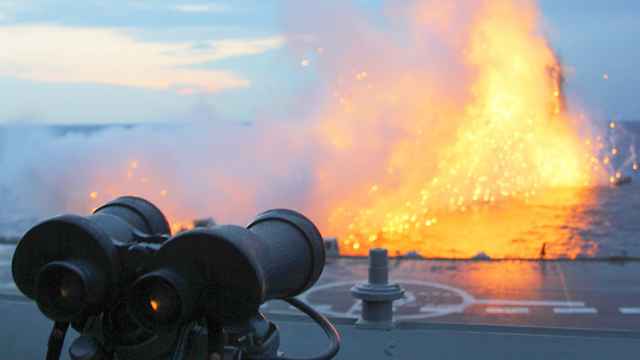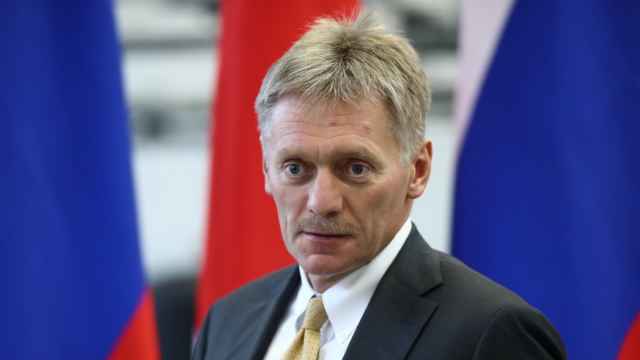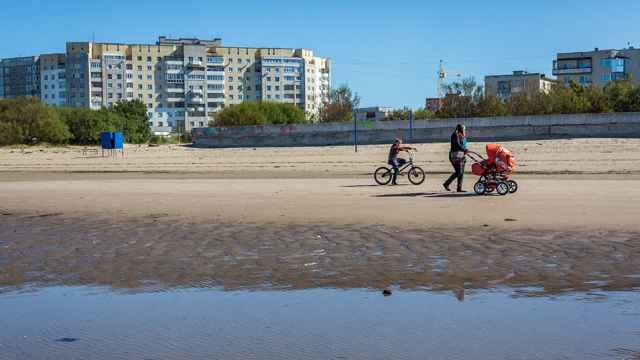Russia's top nuclear official promised on Monday to succeed in developing new weapons as he paid tribute to five scientists killed in what U.S. experts suspect was the botched test of a new missile vaunted by President Vladimir Putin.
The five scientists were buried in the closed city of Sarov on Monday. They died last Thursday in what state nuclear agency Rosatom has said was an accident during a rocket test on a sea platform off northern Russia.
The Defense Ministry initially said background radiation had remained normal, but a spike in radiation levels recorded in a nearby city prompted U.S.-based nuclear experts to suspect the failed test involved a nuclear-powered cruise missile.
The experts said they suspected the radiation release resulted from a mishap during the testing of the Burevestnik nuclear-powered cruise missile.
The Burevestnik was one of an array of new strategic weapons touted by Putin last year. Tensions between Moscow and Washington over arms control have been exacerbated by the demise this month of a landmark nuclear treaty.
The Kremlin has not commented on the accident.
U.S. President Donald Trump said on Twitter on Monday the United States was "learning much" from the explosion.
"The Russian 'Skyfall' explosion has people worried about the air around the facility, and far beyond. Not good!" Trump said, using the NATO alliance's name for the Burevestnik.
At memorial events in Sarov that included a gun salute, Rosatom head Alexei Likhachev praised the deceased nuclear experts as the "pride of the country" and the "pride of the atomic sector."
"The best tribute to them will be our continued work on new models of weapons, which will definitely be carried out to the end," Likhachev was quoted as saying by RIA news agency.
In a video interview published late on Sunday, an official at the scientists' research institute in Sarov did not spell out exactly what they had been doing, but suggested that they had been working on a small nuclear reactor.
The official, Vyacheslav Solovyev, said the institute was working on "sources of thermal or electric energy using radioactive materials, including fissile materials and radioisotope materials."
He said "these developments are also actually happening in many countries. The Americans last year ... also tested a small-scale reactor ... Our center also continues to work in this direction."
The institute's work serves both civilian and military ends, he said.
The city administration in Sarov, which is around 400 kilometers (250 miles) east of Moscow, announced two days of mourning, saying the experts died while "performing a task of national importance," RIA reported.
Rosatom named the five dead scientists as Alexei Vyushin, Evgeny Koratayev, Vyacheslav Lipshev, Sergei Pichugin and Vladislav Yanovsky.
'Elite' of nuclear center
Valentin Kostyukov, head of the nuclear center, which is part of Rosatom, said the test had been preceded by a year of careful work and a state commission was investigating what went wrong.
The nuclear experts battled to control the situation, but were unable to prevent the accident, Kostyukov said. He called them "national heroes" and said the institute had asked for them to be given posthumous state awards.
"These people were the elite of the Russian Federal Nuclear Centre and have tested under some of the most incredibly difficult conditions," he added.
Rosatom said on Saturday the rocket test was carried out on a sea platform and that a rocket's fuel had caught fire after the test, causing it to detonate, Russia's RIA news agency reported.
Though the Defence Ministry initially said no change in radiation was detected after the explosion, local officials in the nearby city of Severodvinsk said radiation had briefly spiked, without saying how high.
Anxious local residents stocked up on iodine, used to reduce the effects of radiation exposure.
Moscow has a history of secrecy over major accidents, most notably after a 1986 explosion at the Chernobyl nuclear power plant in the then-Soviet republic of Ukraine — now regarded as the worst nuclear accident in history.
A Message from The Moscow Times:
Dear readers,
We are facing unprecedented challenges. Russia's Prosecutor General's Office has designated The Moscow Times as an "undesirable" organization, criminalizing our work and putting our staff at risk of prosecution. This follows our earlier unjust labeling as a "foreign agent."
These actions are direct attempts to silence independent journalism in Russia. The authorities claim our work "discredits the decisions of the Russian leadership." We see things differently: we strive to provide accurate, unbiased reporting on Russia.
We, the journalists of The Moscow Times, refuse to be silenced. But to continue our work, we need your help.
Your support, no matter how small, makes a world of difference. If you can, please support us monthly starting from just $2. It's quick to set up, and every contribution makes a significant impact.
By supporting The Moscow Times, you're defending open, independent journalism in the face of repression. Thank you for standing with us.
Remind me later.


